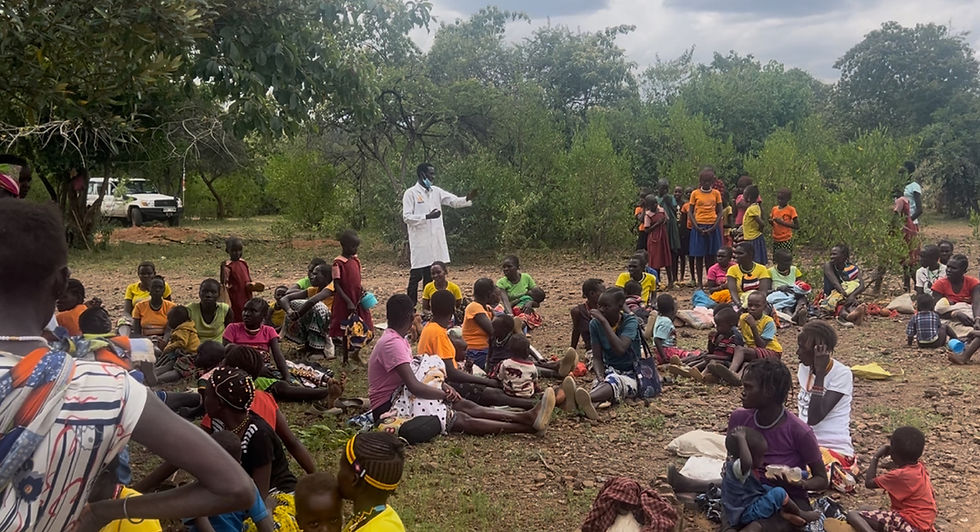A Busy Day at the Hospital
- Hellen Nyakundi
- Nov 14, 2020
- 2 min read
Updated: Nov 24, 2021
Joel Kipturmet is a lab technician at Chemolingot Sub-county Hospital in Baringo County, Kenya. Today is a busy day, and he has been on his feet the entire morning without a break. The patient he is attending to is a 12-year-old boy who is being tested for Kala-azar. Kipturment is one of two lab technicians at the hospital who has received Kala-azar diagnosis and management training, which was organized by the Izumi Foundation. As he prepares the boy for injection, his thoughts wander to a memory from two decades ago. In Nairobi, Kenya’s capital, in the year 2000, another young boy was being tested for Kala-azar. The laboratory belonged to the Kenya Medical Research Institute (KEMRI). At the time, KEMRI was the only facility in Kenya providing Kala-azar services. It was a long, long way from home for a little boy making his first journey out of East Pokot to get treatment.
The journey to Nairobi was a long blur. Too sick to register much, the boy lay his head on his caretaker’s lap. The boy’s caretaker, Chirchir, was a tall, strong man who walked for many hours in the hot Baringo sun to get to patients like the young boy and helped them get to Nairobi. “We were rural folk, our life revolved around our animals. Very few had dared venture beyond Pokot land. We were surrounded by hostile neighbours, the Turgens and the Turkanas who steal our cattle and kill our men. My parents were frantic, I had lost a lot of weight and my swollen stomach resembled that of a pregnant woman. My skin had turned very pale, the colour of death. This was a bad omen. Samuel Chirchir, a field officer working for KEMRI strongly suspected it could be termes, the local Pokot name for Kala-azar. Many people had succumbed to the disease until Chirchir came along. He would take them to a faraway place called Nairobi and bring them back cured. It was my turn,” said Kipturmet, remembering his experience as that young boy with Kala-azar on the way to Nairobi.
Kipturmet is startled as the boy he is testing fidgets in his seat, bringing Kipturmet back to the present. He pricks the boy’s finger with a lancet from the rk39 rapid diagnostic test kit for Kala-azar supplied to the hospital by Izumi. The boy winces in pain, but will not shed a tear, a sign of weakness. Pokot boys have been trained to show little emotion. The result is ready in 10 minutes. It is a positive result. He explains to the father seated on a bench at the reception that the boy has been referred to Kimalel Health Centre, about 70 km away. This is the only facility that provides Kala-azar treatment in Baringo County.
He has a moment to reflect. A lot has changed over the last 20 years in East Pokot; Tarmacked roads are being built, parents are sending their children to schools, health facilities are offering Kala-azar diagnosis. Things are looking up!
Another patient walks in and the long day continues.





Comments